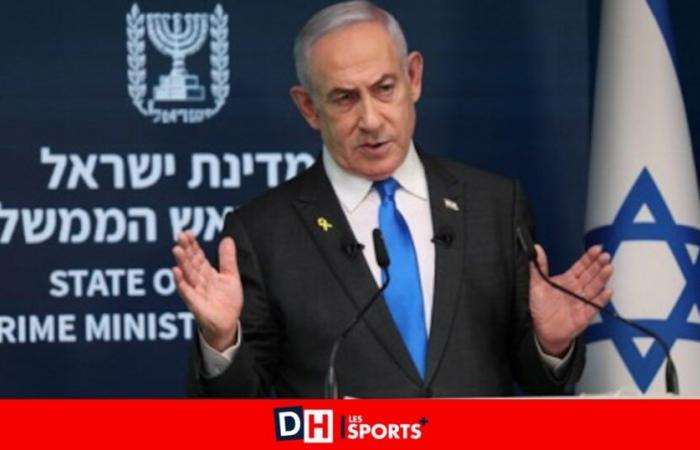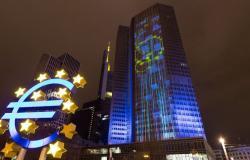
“Of course, there is the fear of escalation,” comments Raoul Delcorde, honorary ambassador of Belgium. “But a conflagration is not that likely. A conflagration means that the major regional players, starting with Iran, would become more involved in a form of open conflict with Israel. This is not at all the Iranian strategy at the moment. Of course, Iran is Israel’s enemy and vice versa. But Iran, today, is not in an offensive posture. The Iranian president is in New York (Editor’s note: in the context of the UN General Assembly) and his country is bogged down in all sorts of internal problems. Its population is not at all ready to mobilize in a conventional war. So I think that Iran will show a certain restraint as it has shown up to now.”
Middle East tensions: Death toll from Israeli strikes in Lebanon rises to 558, Beirut hit by targeted strike
Lebanon, for its part, does not have the means to respond to the Israeli offensive. “It is in a catastrophic economic state and does not have the military means to stand up to Israel. And even if Hezbollah is Hamas times 10 – experts say they have 150,000 rockets – it has suffered significant losses. Hezbollah’s military establishment has been partially decapitated. And this group, which is represented in the Lebanese Parliament, probably does not want to see Lebanon’s already catastrophic situation get worse.”
According to Raoul Delcorde, Israel’s tactic is mainly to considerably reduce the strike force of Hezbollah, now humiliated. “Israel does not want to take the risk of a repeat of October 7, in the north. So, they have two objectives: reduce Hezbollah’s arsenals, and push Hezbollah fighters north of the Litani River. And therefore, reestablish a buffer zone, in Lebanon. We are in a purely military logic. And the truly deplorable part of this war is that unfortunately many civilians are dying. It is tragic.”
According to the man who is also a professor at UCLouvain, the fault also lies with Lebanon, which has never been able to gain control over Hezbollah. “We have a country that has its own army but has never been able to control Hezbollah, a non-state actor, which has its own militia. Hezbollah provoked Israel’s reaction by constantly sending rockets. They thought they would loosen the Israeli stranglehold on Hamas by capitalizing on the Arab world’s image of resistance, but they found themselves trapped. Not only has Israel intensified its response against Hamas, but Israel has opened a second front. And they do not have the capacity to react. We see this with the pager affair: Israel is very advanced technologically. And I even wonder if the Americans have mastered this type of technology. We must not forget that the leader of Hezbollah was killed in his villa in Tehran, with astonishing precision.”
Middle East: Nearly 500 dead including 35 children in Lebanon, new Israeli strikes this Tuesday
Events that can make Israel’s enemies think. Who, for fear of a more significant response, would give up on attempting an offensive in the future. A culture of fear established by Israel to the detriment of many civilians. “For the Israelis, the only thing that matters is the protection of its population. But the collateral damage is taking on an intolerable dimension. We urgently need to build de-escalation. We need a ceasefire quickly. We must give UNIFIL (Editor’s note: the United Nations Interim Force in Lebanon) the power to intervene again. And only Iran has Hezbollah’s ear. Iran must realize that if Hezbollah stops sending its rockets into Israel, Israel will have to stop too.”
Otherwise, Israeli Prime Minister Benjamin Netanyahu could continue his deadly response. According to Raoul Delcorde, he would also take advantage of the election campaign for the American presidential election. No candidate wants to come out of the woodwork by calling on Israel to reason, for fear of alienating part of its electorate. “A priori, he does not fear reprimands from the Americans for the moment. However, they are the only ones who have real leverage over Netanyahu. He is playing a little on the American calendar. The Europeans, for their part, do not really have any power to put pressure on Netanyahu. And the Russians are very happy that this war continues because it distracts the Europeans from what is happening in Ukraine. In the end, only Iran really has the possibility of initiating de-escalation. But does it really want to?”
Economic consequences in Europe?
If the conflict drags on, will there be consequences for Europe, as there were with the Russian-Ukrainian conflict? Raoul Delcorde is not convinced. “Economically, Lebanon is not a major importer. And its exports to the European Union should only be relatively limited. Similarly, European exports to Lebanon should not be excessive. This country is almost in a state of cessation of payments. And the Israeli offensive will not improve anything.”
More problematic is the presence of the Houthis in the Red Sea. “They block the passage through the Red Sea, which causes the diversion of supertankers and therefore additional costs for the import of products from Asia. But on the strictly economic level, the local war, for the moment, does not have much impact.”





